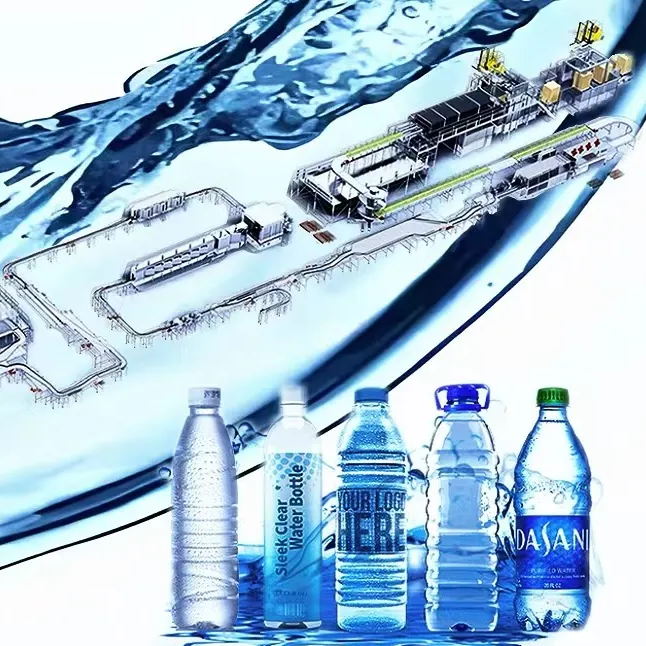
Filling machines are indispensable tools for industries ranging from food and beverage to pharmaceuticals, cosmetics, and chemicals. Selecting the right filling machine can streamline production, ensure accuracy, and optimize operational efficiency. With the diverse range of products and packaging requirements, understanding the key considerations for choosing the right equipment is vital. This article aims to provide a comprehensive guide to help you navigate the decision-making process effectively.
So back to the question before, how do you choose a filling machine?
The answer depends on your specific needs, including the type of product, production scale, and packaging requirements. To help you make an informed decision, this article dives into
critical factors such as machine types, material compatibility, speed, precision, and more.
Understanding Filling Machine Types
Choosing the right filling machine starts with knowing the types available and their suitability for different applications.
1. Liquid Filling Machines
These machines are designed for filling products with a liquid consistency, such as water, oils, or cleaning solutions. They come in various configurations:
Gravity Fillers: Suitable for low-viscosity liquids.
Piston Fillers: Ideal for viscous liquids like sauces and creams.
Pump Fillers: Handle high-viscosity products with precision.
3-in-1 Bottle Water Filling Machines: Combine rinsing, filling, and capping into one system, commonly used in high-speed operations like a 12000BPH water filling line.
2. Powder Filling Machines
These are designed for fine powders such as spices, flour, or powdered chemicals. Features like augers and vacuum systems ensure accuracy and minimize spillage.
3. Granule Filling Machines
Used for solid particles like nuts, grains, or seeds, granule filling machines often incorporate weigh-based systems for precision.
4. Specialized Systems
Machines tailored for specific industries, such as gallon-sized filling and packaging lines, address unique production needs.
Selecting the appropriate type based on product characteristics and production goals ensures efficiency and cost-effectiveness.
Factors to Consider When Choosing a Filling Machine
Production Scale and Speed
The scale of your operations significantly influences your choice.
Small-Scale Production: Manual or semi-automatic machines suffice for small batches.
Medium to Large-Scale Production: Automatic systems like a 12000BPH water filling line offer higher speed and consistency, crucial for meeting demand.
High-speed systems not only enhance throughput but also maintain precision, reducing waste and downtime.
Material Compatibility
The compatibility of your product with the machine's construction materials is critical.
Evaluate the machine's nozzles, valves, and seals to ensure they can handle the product's properties without contamination or wear.
Precision and Accuracy
Precision in filling volume ensures product consistency and minimizes wastage. Advanced liquid filling machines offer features like:
Machines like the 3-in-1 bottle water filling machine excel in delivering consistent performance across diverse applications.
Adaptability and Flexibility
Modern production lines often require machines that can handle multiple container sizes or switch between products with minimal adjustments. Look for:
Maintenance and Support Considerations
Reliable maintenance and after-sales support are crucial for long-term efficiency.
Maintenance Needs
Evaluate the complexity of maintaining the machine. Some systems, like gallon-sized filling and packaging lines, come with self-cleaning features that reduce maintenance time.
Spare Parts and Warranty
Ensure the supplier provides easy access to spare parts and a robust warranty policy. This ensures minimal disruption to your production in case of breakdowns.
Training and Support
Opt for manufacturers that offer training programs and responsive technical support to help your team operate the machine effectively.
The Role of Cost in Decision-Making
Cost is often a decisive factor, but it should not compromise quality. Consider the total cost of ownership, which includes:
Investing in a high-quality liquid filling machine may have higher upfront costs but can save money in the long run through durability and efficiency.
FAQs
1. What type of filling machine is best for high-viscosity products?
A piston filler is ideal for high-viscosity products like sauces and creams, ensuring precision and consistency.
2. How do I maintain a liquid filling machine?
Regular cleaning, timely replacement of worn parts, and adherence to the manufacturer’s maintenance schedule will keep the machine in optimal condition.
3. Can a filling machine handle multiple container sizes?
Yes, many modern machines, such as 3-in-1 bottle water filling systems, are designed for versatility, accommodating a range of container sizes.
Selecting the right filling machine is a strategic investment that impacts your production's efficiency and profitability. Whether you're setting up a new operation or upgrading existing equipment, a thorough understanding of your needs and the available options will guide you to the best choice.

















